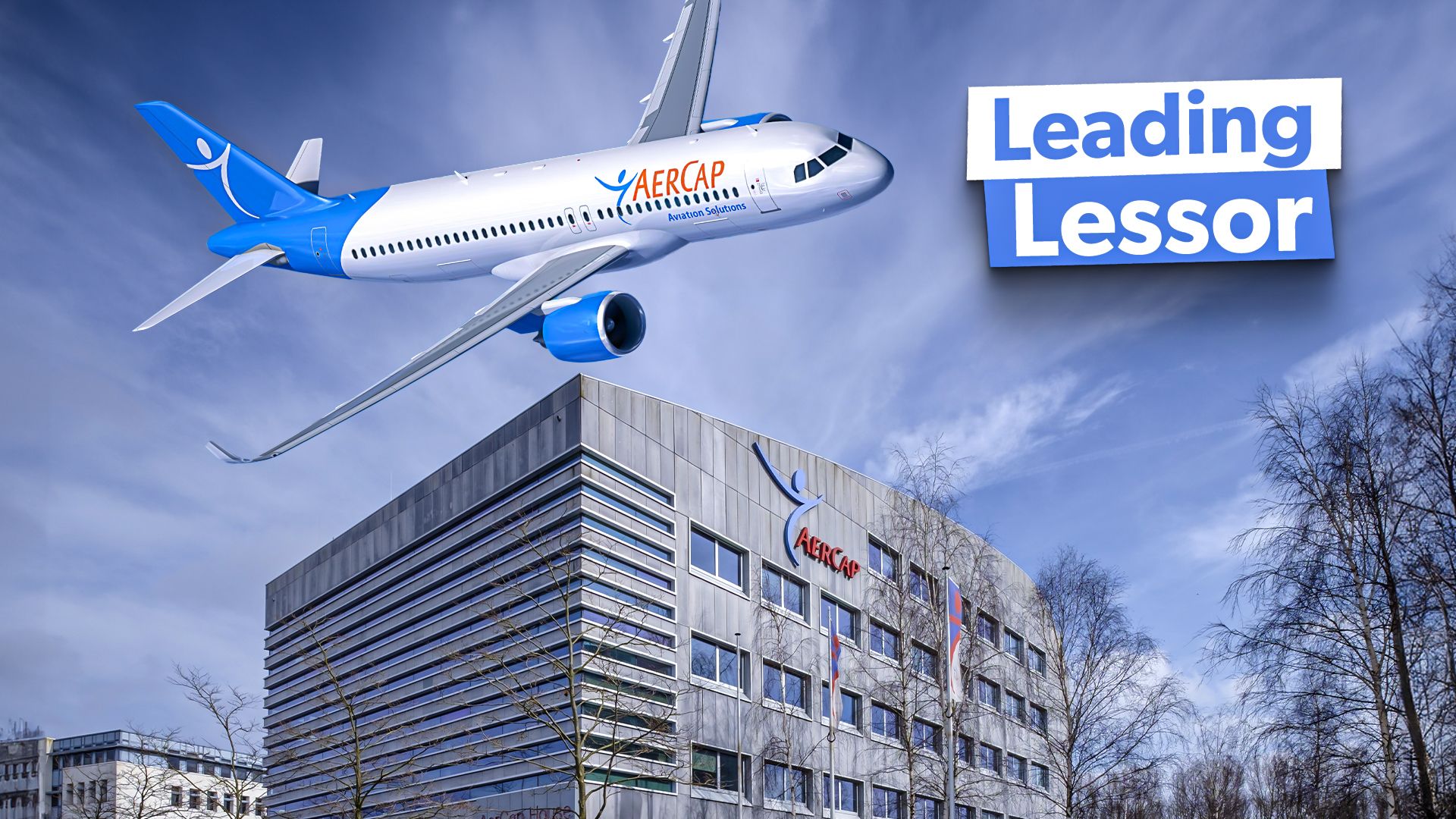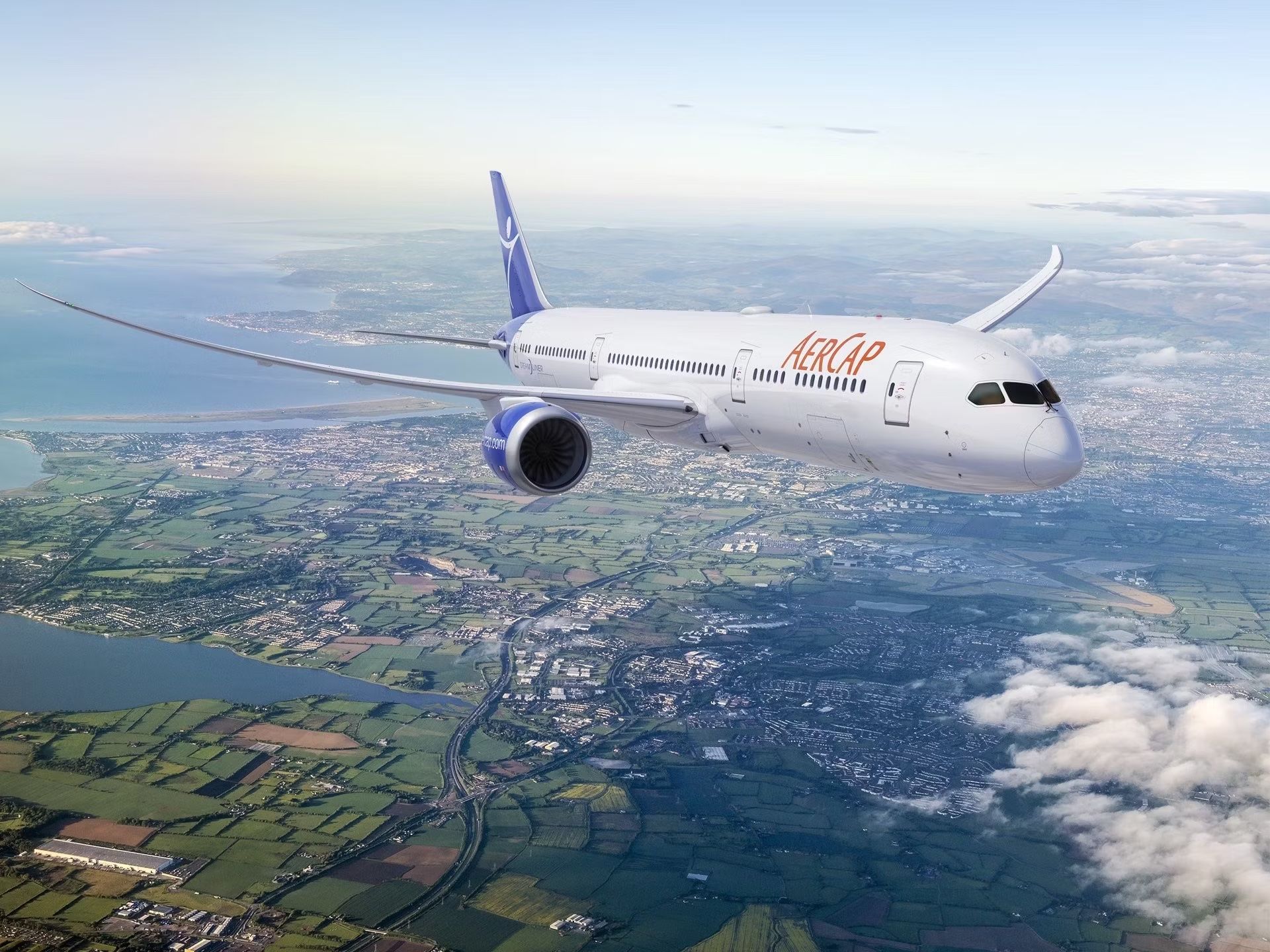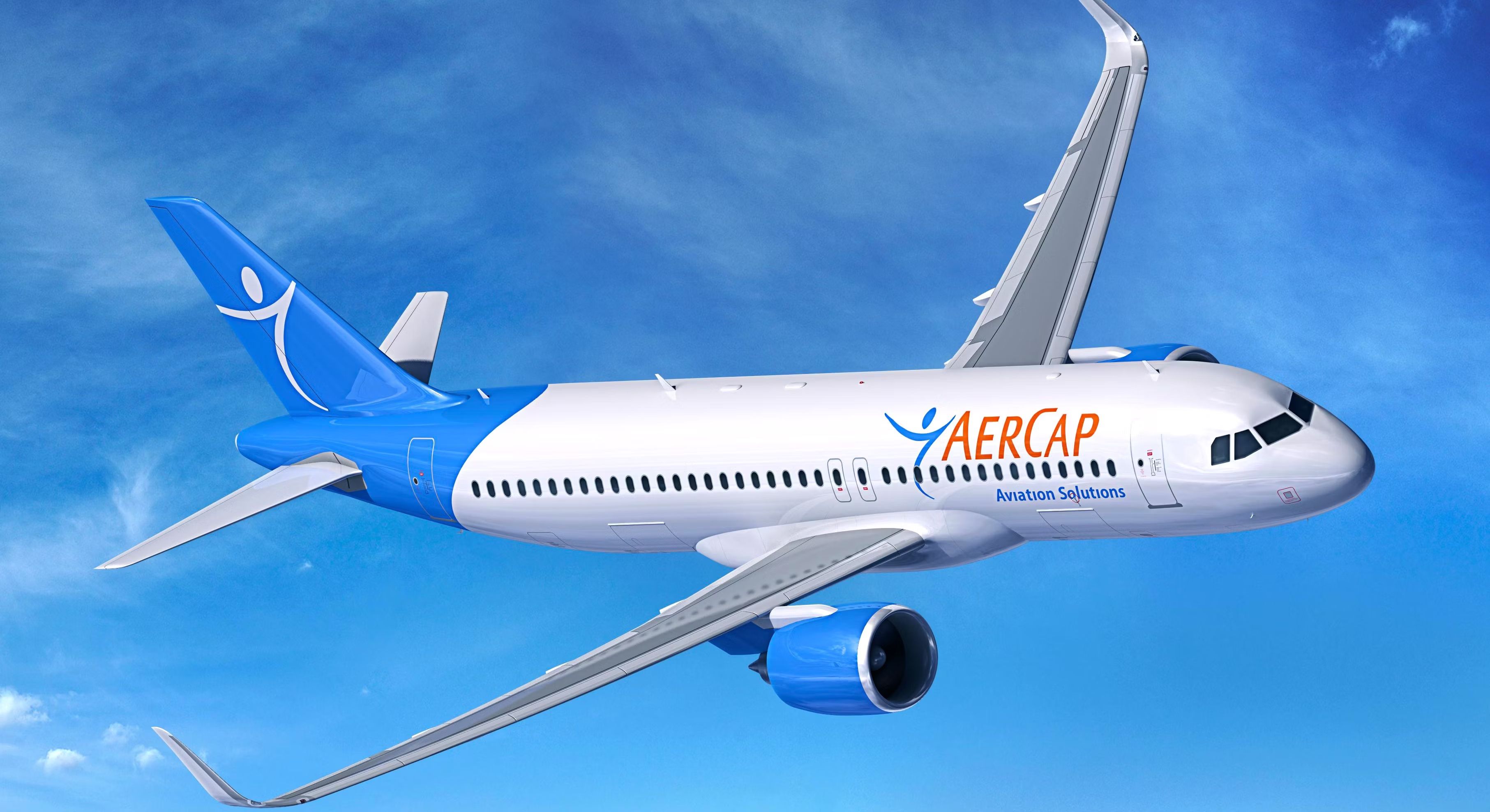AerCap Holding N.V., which is more commonly referred to as simply AerCap, is today the world’s largest aircraft leasing company and has total assets worth nearly $70 billion. The Irish-American, Dublin-based corporation achieved this title following the 2014 acquisition of the International Lease Finance Corporation (ILFC) and the 2021 purchase of General Electric Capital Aviation Services (GECAS) from the manufacturer.
With over 1,400 aircraft in its extensive fleet, including both narrowbody and widebody jets, the company has grown to become one of the largest commercial aviation corporations across the globe, and growth remains on the horizon for the company. Despite periods of semi-private ownership, AerCap
today is a major publicly traded company, with the firm’s stock listed on the New York Stock Exchange with the ticker AER.
Photo: Boeing
Today, the company is owned entirely by public shareholders, the largest of which are several major North American investment management corporations. One of these major shareholders is Check Capital Management, a Southern California-based private investment manager that holds major equity positions in a handful of global corporations. The firm has been optimistic since it completed its first major investment in the company shortly following the COVID-19 Pandemic in 2021.
To learn more about AerCap’s success, we spoke with Chris Ballard, a managing director at Check Capital who has extensively followed the market performance of AerCap and similar lessors. Across the board, Ballard was quick to note his support for the company’s innovative business model and faith in the seasoned management team at the helm.

A company with a positive forward outlook based on structural advantages
The leasing environment, from a financial perspective, offers a significantly stronger investment opportunity than passenger air carriers, which have historically failed to consistently turn high profits for investors. However, aircraft leasing companies like AerCap sit in a strong position, with three key factors contributing to their continued success:
- Airlines enjoy the continued flexibility of short- and medium-term leases
- Carriers have struggled financially in the wake of the COVID-19 Pandemic and thus don’t have the resources to invest in purchasing new aircraft
- Manufacturer delays have meant that lessors can get planes to airlines much faster than Boeing or Airbus
But, as Ballard pointed out, not all lessors have performed equally well, with the Air Lease Corporation facing major financial difficulties over the past few years. Nonetheless, AerCap has managed to perform well, with the stock increasing in value by nearly 55% since it was first purchased by Check Capital back in 2021, according to CNBC. The airline has managed to continue expanding the market for aircraft leases, navigated the complexities of the post-pandemic commercial environment, and succeeded in delivering strong returns to investors.
Some difficulties along the way
It is important to note that AerCap has faced a host of challenges over the past few years, including everything from high interest rate environments to fuel uncertainty and even major challenges from the Russian invasion of Ukraine. When global sanctions hit Russia following the onset of its invasion in February 2022, AerCap, like most other international companies leasing aircraft to Russian airlines, quickly terminated its lease agreements.
Despite this, however, Russia refused to return the hundreds of aircraft, and illegally (under international law) re-registered them as Russian-owned planes. This theft resulted in millions in financial losses for AerCap, which was not able to recoup the entire cost of its lost assets through insurance claims and lawsuits. Furthermore, aircraft insurance has become an increasingly more expensive piece of AerCap’s larger cost picture.
The path forward for AerCap
Nonetheless, Ballard is confident that the lessor has managed to weather these storms and remain on the path toward financial success. Ballard had the following words to share regarding AerCap remaining on track for long-term profitability:
“The company still seems very undervalued to us. They are continuing to execute just how they are. For us, what we’re excited about is buying more shares at this price, selling more planes to China in the next six months.”
One of the key strategic decisions that Ballard has pointed to as a major piece of the airline’s long-term success plan is the continued sale of aircraft to Chinese airlines. This helps the company in many key ways:
- AerCap can sell aircraft above market price and turn a profit, taking advantage of extensive manufacturer delays
- The company can remove itself from having leases in the Chinese market, releasing the risk of another Russia-esque situation happening again
The airline has managed to navigate the challenges of high-interest-rate environments
Ballard also discussed the impact that economic conditions such as high inflation and increased interest rates have had on the airline. Typically, businesses struggle when prices rise and borrowing money becomes more expensive, something that AerCap has managed to avoid. Ballard offered the following thoughts regarding the effects of the current inflationary environment:
“High interest rates have been both good and bad [for AerCap]. If interest rates were to have remained high for a longer period of time, it would have negatively affected their margins more.”
However, with a shorter inflationary period, the company was able to reap the benefits of some airlines choosing to purchase short-term leases instead of investing in new aircraft, given the higher cost of borrowing. Furthermore, inflation has led aircraft prices to rise, something which motivated the company’s CEO, Gus Kelly, to sell aircraft primarily in the Chinese market.
Photo: AerCap
At the end of the day, AerCap is a successful lessor that has managed to effectively leverage economic conditions to its advantage, achieving extensive profitability during periods where the industry as a whole has struggled. As Ballard mentioned, AerCap had positioned itself to succeed in a brief 2-3-year inflationary environment with high interest rates. As per a Washington Post report, now that Federal Reserve Chairman Jerome Powell has begun to cut interest rates, it is likely that this period is ending right when the lessor needed it to. As a result, Check Capital and other investors remain more confident than ever in the company’s potential for long-term success.



